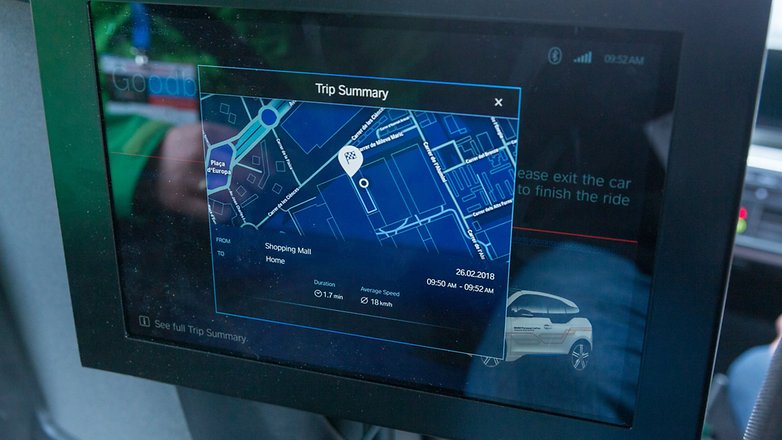Behind the curtain, the autonomous car is driven by human sweat


With the advancement of smart technology bringing us devices that seem almost magical, right down to cars that drive themselves, it's easy to forget that the foundation of our shiny new gadgets is quite old-school in more ways than one: mundane repetitive human work in often unsavory conditions that we claim to have left behind in the past. But if we're to move forward into the future as ethical consumers, it's important not to forget the real human labor behind our robot servants.
For self-driving cars to become viable mainstream products, the AI needs to be trained on huge amounts of data. This includes people, cars, road signs, weather, lane markers and obstacles, etc. And how is that training data processed? By humans, who carefully select aspects of countless images and sort them in a way a computer can understand.
A recent BBC report highlights who exactly is doing this kind of vital drudge work, and predictably, it takes place far away from Silicon Valley. In Kibera, east Nairobi, Africa's largest slum, over 1,000 workers squint hunched over their monitors, carefully identifying all the different aspects of the environment that the smart cars will be trained to recognize.
These are the entry-level workers of Samasource, a San Francisco-based company whose clients include some of the biggest names in tech: Google, Microsoft, Salesforce and Yahoo, among others. As Samasource workers toil to bring us state of the art self-driving cars, it's a technology that these laborers, 75% of whom are from the slum itself, will likely never experience the benefits of. Kibera has more fundamental problems to solve, including a lack of reliable clean water.
Two sides to the story
It's a widely-known but seldom acknowledged fact that many of the high-end technological devices are fueled by highly exploitative labor conditions in the global south, with people toiling through miserable, sweatshop-like conditions to produce the components of our smartphones, for example. Or Facebook's moderators in the Philippines, paid pennies to spend long days filtering through the most gruesome images users try to put on social media. Large numbers of desperate workers in countries where wages are a comparative pittance compared to what Western workers would demand are attractive propositions for multinational tech companies.

In the case of Samasource, workers confessed to the BBC that the work was hard, repetitive and boring, and that they were under constant pressure from managers to go faster, faster, faster, to hit company targets. Ergonomic conditions were also dire, with cramped conditions and poor furnishings causing back and eye strain. Let's face it, Samasource wouldn't be here if it meant that it couldn't get away with 'worse' working conditions that it could do in San Francisco, where its HQ is based.
On the other hand, Samasource's data processors earn $9 a day...basically nothing to many of us, but compared to the $2 a day average for the area, it counts for a lot. For many workers, their experience in the technology sector can be the first step of a path that leads out of the slums, to higher education or more formal work. It's a big employer for women, with a workforce that's over 50% female, with additional facilities provided for working mothers.
Considering an ethical smart future
It may be hard to talk about, but even if $9 looks great compared to $2, to look at the comparatively improved conditions in an impoverished country and say that's 'good enough' for them is to abandon the idea of a human dignity that isn't completely at the mercy of market forces. As both a consumer of and commentator on technology, I'm not prepared to accept that. To say nothing, of course, of historical factors: the forced wealth extraction that countries like Kenya were subjected to at the hands of colonial powers is what makes them such a target for outsourcing today.

One could argue that it isn't Samasource's job to fix Kibera's problems. In fact, since outsourcing depends on poor conditions in the target area to attract desperate workers, it's directly against their interests to do so. But the corporations can still be compelled to be fairer, either through consumer backlash or by democratic pressure on our governments to regulate them. Recent power struggles between big tech and governmental bodies have already lead to regulatory activity based on antitrust and privacy. Labor practices and humanitarian concerns should also be on the agenda.
As our technology continues to evolve and place miraculous gadgets in our hands, our moral and ethical evolution continues to lag behind. Anything that can't be attractively commodified as a feelgood lifestyle choice gets shunted off out of sight.
But appreciating the value of our technology also means appreciated the labor - and the laborers - who make it possible. A future where Americans are being chauffeured by smart cars trained by workers drinking dirty water isn't one worth celebrating. Even the most fervent geeks should acknowledge this. It's not a problem unique to artificial intelligence, or driverless cars, but technology become an increasingly important sector of the global economy, tech fans and consumers should pressure companies to innovate more ethical business models, and not to thoughtlessly reproduce the inequalities of the industrial systems of the past.
What do you think of big tech companies use of outsourced labor? Should it be made fairer, and if so, how to make it happen?
Source: BBC




















Seems like it's a net win for now.
Read history and learn that European and North American labour standards were not achieved with the sympathy of consumers, company bosses or politicians, but with bare knuckles and blood. No sympathy for working folk sniveling for somebody else to help them, the game is known, the rulebook is written, play or go home.